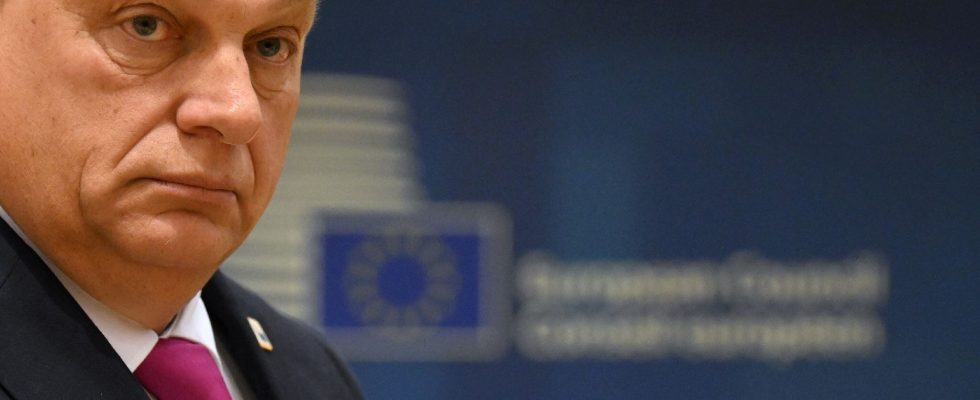The standoff continues between Viktor Orban and the European Union. And the bone of contention which has opposed the Hungarian leader to the Twenty-Seven for several weeks is none other than the aid fund for Ukraine. Some 50 billion euros. During the European Council on December 15, Budapest refused to validate the mid-term review of the multi-annual European budget, thus blocking the payment of funds deemed crucial for kyiv, whose stocks of munitions are dwindling as the conflict escalates. gets bogged down.
A situation from which Viktor Orban intends to take advantage. By conditioning, among other things, the lifting of its veto on the release of Hungarian funds. In total, 21 billion euros, frozen by the European Union due to breaches of the rule of law in Hungary. In mid-December, several European deputies notably criticized Brussels for having “given in to blackmail” by Viktor Orban by releasing the tidy sum of 10 billion euros.
Orban’s offensive
“European Commission President Ursula von der Leyen pays the biggest bribe in EU history to autocrat and Putin friend Viktor Orban. The signal is disastrous: blackmail […] is bearing fruit,” responded German environmentalist MEP Daniel Freund.
Accusations brushed aside by the Commission, and by the person concerned himself. “My experience of more than forty years in politics has taught me that we must never establish a link between technical questions such as money and historical challenges. Otherwise, we risk total chaos.”, argued Viktor Orban in an interview with Point published on December 8, a week before the European Council.
Unsurprisingly, therefore, this first payment will have had no effect on the decision of the Hungarian Prime Minister who does not seem to have budged one iota on his refusal to maintain a European aid fund for Ukraine. And whose position was reiterated this Thursday, January 18 by its Minister of European Affairs.
Questioned by our colleagues from World, Janos Boka therefore suggests creating a “fund endowed by Member States and international actors”, independent of the European Union budget. Enough to dash the hopes of seeing Viktor Orban give in to pressure from his partners during the extraordinary European Council which will be held on February 1st.
The petition that attempts to strip Hungary of its right to vote
Faced with the specter of a prolonged blockage, a counterattack is being prepared in the aisles of the European Parliament. A petition has been circulating for several days. Launched by the Finnish EPP (Christian Democrat) Petri Sarvama, the text calls for the triggering of the deprivation of Hungary’s rights, under the procedure of Article 7-2 of the Treaty on European Union.
The method is the opposite of that used by certain European leaders, who opt instead for a gentle approach. This is the case of Emmanuel Macron, who invited the Hungarian leader to the national tribute paid to Jacques Delors on January 5. A notable presence at the end of a morning which ended with a lunch at the Elysée in the company of eleven other European leaders and former President François Hollande. And an account from the Hungarian leader of the post-communist transition period. That’s what it’s called, pulling out all the stops.
